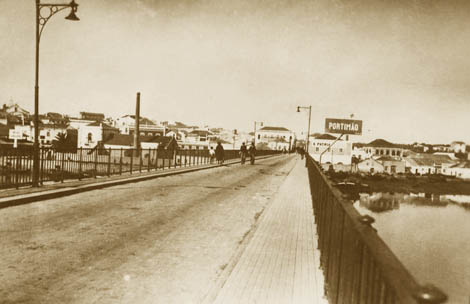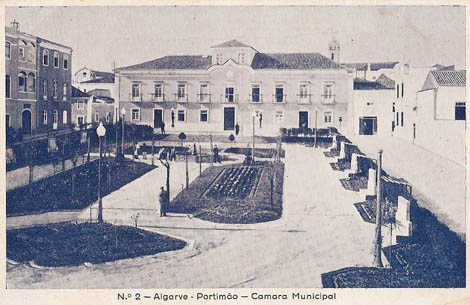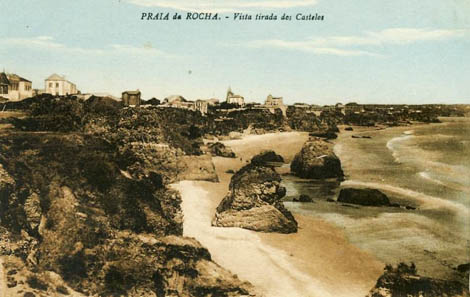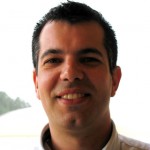 The visit of the President of the Republic Óscar Carmona, in February 1932, was the second visit by a head of state to the Algarve after the establishment of the Republic. In times when connections to the region were difficult, President Carmona visited the main towns and contacted the living forces. Here is another chapter, with the beginning of the visit to the Barlavento Algarvio. Already then there was talk of crisis...
The visit of the President of the Republic Óscar Carmona, in February 1932, was the second visit by a head of state to the Algarve after the establishment of the Republic. In times when connections to the region were difficult, President Carmona visited the main towns and contacted the living forces. Here is another chapter, with the beginning of the visit to the Barlavento Algarvio. Already then there was talk of crisis...
After visiting the Eastern Algarve, President Carmona arrived in Portimão at 14 pm on Wednesday, February 00, 17.
Although the reception was scheduled for 12:30 pm, the program was fully completed, starting with a welcome ceremony at the Town Hall, followed by lunch in Praia da Rocha.
The city had a festive look, “being flagged profusely. The bells tolled and, in the port, the sirens of the steamers could be heard, also flagged” (O Século).
As in other parts of the Algarve, rockets immediately went up into the air, while His Excellency the President of the Republic and other delegations (President of the Ministry, Ministers of Commerce, Navy, War and Justice, Civil Governor, etc.) , entered the city triumphantly.
After reviewing the strength of Caçadores 4, who guarded the honor, the president moved to the City Council, amid “uninterrupted cheers”.
 According to “O Século”, the “staircase of the Town Hall had been carpeted and school children threw flowers and sang the national anthem”. The session room where the welcome ceremony took place “was full”.
According to “O Século”, the “staircase of the Town Hall had been carpeted and school children threw flowers and sang the national anthem”. The session room where the welcome ceremony took place “was full”.
The president of the Municipal Administrative Commission, Francisco José Duarte, opened the session greeting the distinguished visitor and after describing "the beauties of the region and the importance of its industry, praised the action of the Dictatorship, stating that the Army saved the country in time." Words crowned, according to Diário de Notícias, with clapping and cheering.
The mayor then referred to the “serious crisis that the council is going through and the lack of work, saying he hopes that he will soon enjoy the benefits of the presidential visit”.
In turn, General Carmona “declared himself enchanted and profusely moved by the affectionate reception he received, referring with deserved praise to the beauty of the Algarve landscape. The reception of Portimão showed him how the work of the Dictatorship is appreciated by the people.”
He also stated that the people of the Algarve “recognize the services provided by the current political situation, which many consider tyrannical. It was easy to show the falsehood of this classification. (…) He congratulated the Municipality on its work and assured that the Government, within the Treasury's possibilities, will assist the Algarve as much as possible”.
He ended by saying that “Portimão is a true bastion of work, and the government will never forget this triumphal journey”, ending with “Hurray for Portimão, which was enthusiastically responded to”.
Then, in the garden, where thousands of people remained, and as in other lands in the Algarve, President Carmona awarded the Order of Agricultural and Industrial Merit to three workers: Gabriel do Santos (80 years old cork maker, from Silves); José Carmo Nunes (75 years old, carpenter from Portimão); and Joaquim da Silva Neves (63 years old, segeiro, from Lagoa), whom he “embraced amidst the applause of the crowd”.
It also placed the insignia of the Ordem da Benemerência on the banner of the Firefighters Volunteers of Portimão, also embracing its commander.
Visit to Praia da Rocha and Caldas de Monchique
 The Head of State and his delegation then headed to Praia da Rocha, where the president stayed at the chalet of Mr. Francisco Bívar and had lunch.
The Head of State and his delegation then headed to Praia da Rocha, where the president stayed at the chalet of Mr. Francisco Bívar and had lunch.
As a result of the event, the Avenida Pavilion was exceptionally open to the public, as it closed during the winter, with a dancing tea held there in the afternoon, during which the ministers and the President were much acclaimed by the crowd. These, according to the DN, will have visited Caldas and Monchique that afternoon.
In the evening the banquet was held with great attendance, among which were decorated workers.
The honor guard was made by the firemen, and when the President of the Republic entered the room, an orchestra performed the «Portuguese», producing expressions of enthusiasm. The mayor of Portimão began the speeches, saluting the head of State and lamenting that the crisis affecting the municipality had not allowed for a more imposing reception. He said he hoped the government would employ means to quell the crisis, coming up with measures suited to the situation of the local working classes.
This was followed by the president of the Industrial and Commercial Association of Portimão, João Francisco Leote, who, after greeting the visitors, said, according to “O Século”, that “Portimão is a land of orderly and hardworking people, where there is an industry of preserves that despite the great crisis, can contribute to the balance of our economic balance”, ending by wishing President Carmona prosperity.
«The Algarve has been forgotten»
After a brief speech by the civil governor, the minister of Commerce, on behalf of the head of state, said: “The Algarve has been forgotten, even to the point of seeming to be disconnected from the country. It had no navigation because of the silted ports, it had no roads. The Dictatorship gave it a road and the Roxo bridge, and will make more connections from windward to leeward, and develop tourism in Odemira, Aljezur, Vila Real and Mértola.”
Referring to the enthusiastic way in which the crowd acclaimed the government, he stated, according to the DN, “When the people manifest this way, it is because a great movement determines the prologue of a beautiful future for the Motherland. And he added: – The motto of the Dictatorship is only to make the people happy”. It ended with a toast to the working people of the Algarve and cheered for the Fatherland and the Republic.
Journalist Félix Correia spoke on behalf of the press, thanking the greetings and “affirming complete impartiality in carrying out” his mission.
Finally, the President of the Republic spoke, thanking the manifestations he had been targeting throughout the region: “Outside the reception protocols, a sincere part of the population claimed to be recognized for the works carried out by the Dictatorship. He said that the situation will take care of the needs of the workers who must have more sun and happiness. Referring to the press, he said that the situation has received unfair attacks and that he would thank journalists who do work for truth and justice” (DN). It ended shortly thereafter with a cheer for Portimão and “again, enthusiastic cheers and applause were heard”, while the orchestra played the «Portuguese».
After the banquet, a ball was held in the Praia da Rocha pavilion. The entire village was “profoundly lit”.
Crisis in 1932, crisis in 2013
The people of Portimo received President Carmona with enthusiasm and not even the crisis that was going on took them away from the presidential path.
81 years later, Portimão and the Algarve are going through a new economic crisis, but if, in 1932, the Military Dictatorship was legitimized, with public investment and decorations for workers, in short “making the people happy”, today it is the Democratic Regime that agonizes in perverse austerity.
The canning factories that then contributed to eliminating the deficit in the Portuguese trade balance have disappeared, what remains for us is “the beauties of the Algarve”.
But today, as in 1932, we know that the government “within the Treasury's possibilities, will assist the Algarve as much as it can”. It remains to be seen whether this will not happen too late.
On February 18, 1932, the President of the Republic, General Óscar Carmona, ministers and delegation went shortly after 9:00 am, by car, to Lagos and Sagres. The regional tour continued.
Read the 1st part of this article here: Read the 2st part of this article here: Read the 3st part of this article here: Read the 4st part of this article here: Read the 5st part of this article here: Read the 6st part of this article here: Read the 7st part of this article here Read the 8st part of this article here.

Author Aurélio Nuno Cabrita is an environmental engineer and researcher of local and regional history


















Comments